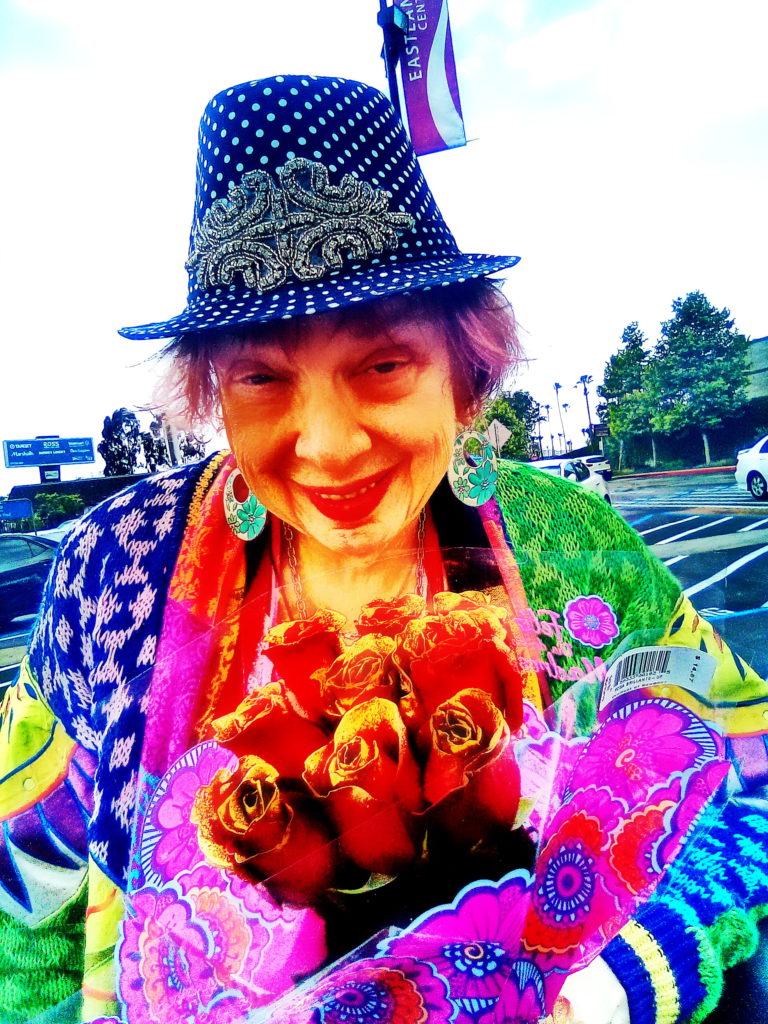These intrepid Aussies blew me away with a thoroughly researched article that really tells it like it is.
Everybody is depressed and anxious. I have seen enough figures saying that mostly all — 60 to 70% — psych meds are given for anxiety and depression. Some say 1/5 to 1/4 of the American/World/choose your country population is growing in anxiety and depression.
Depression can be a pretty darn serious illness that can bring a person’s productivity to a screeching halt.
I have survived numerous theories as to what actually causes depression. Earlier in my training I heard about families in Iowa (where presumably nobody ever moves) where generations of antisocial personality-disordered males had depressed wives,
I think that was supposed to prove the genetic nature of depression, but I always figured, if I were married to an antisocial male I would be depressed too.
I have heard depression blamed on all manners of pollution and industrial waste. Pesticides? Manufacture of plastics?
Just when people start finding all sorts of aches and pains and bodily problems concurrent with depression. Just when I start sending A LOT of my depressed patients to my clever P.A. to beef up their immune systems.
My P.A., (Physicians’ Assistant) Dr. Craig Jace, is a doctor of oriental medicine, a naturopath and homeopath and acupuncturist and probably a lot of stuff I forgot.
I can’t do everything by myself — but with people like Dr. Jace helping me, we are making progress!
Filed under depression, Diagnosis by on Sep 1st, 2019. Comment. ![]()
We went for the entertainment, but had dinner during the show at an upscale establishment in Huntington Beach called “La Cave.”
The name was no accident — it was, basically, a cave.
Oh yes, it was decidedly upscale, since they don’t give you a physical menu (it is printed on their web page — tres modern) but once you are seated, they have to show the cuts of everything on a glass-covered cart.
Nothing wrong with the food. There aren’t many choices, but my husband raved that his basic steak was extremely well prepared.
But the show was the reason for going, and it was very good — although the poor singers and musicians were cramped in a small area.
The singers and their little band (drums and bass and keyboard) were decidedly retro, which may be part of the reason they were decidedly upscale. I guess you have to be old to find the music truly familiar, but pieces they played later in the evening were more newer stuff I think they were trying to make sound old.
My wonderful husband thinks it is good for me to go to upscale places, because I work hard a lot.
Our swing-dancing friends were elated by my revelation of untranslated extra verses in the old Yiddish (Judaeo-German) song, Bei mir bist do schön, which had been a major force in my young childhood.
Of course it was popularized in the Big Bad Era by The Andrews Sisters — and it was the version our evening’s entertainment provided.
The swing dancers — the supremely talented Alec Marken and Sarah Aisha — stole the show with a spotlight dance and afterward introduced me to a young oriental man who was trying to figure out what to do in life.
What is amazing is that I seem to have fallen into the “elder stateswoman” sort of role.
From a hospital file clerk to studying teaching English to foreigners. I did that as a substitute teacher.
I hope I have not done too much already, for I know I want to do, must do, new things. And new things are on the horizon — much more interesting than cave exploration.
Of course, you will read about them here — so stay tuned!
I believed once that the U.S. military was a noble and distinguished place. Not that any of my direct lineage (or collateral relatives, for that matter) had ever served. My father was rated a 4F by the draft in WWII for his flat feet.
My grandmother of blessed memory told me to “take care of America” for her. In the Ukraine, she had not considered herself pious enough to make it in Isreal. She preferred the USA, having heard the streets were paved with gold and streets also somehow held an opportunity for upward mobility.
She never told me exactly what that meant, but as a resident doctor whose residency school had folded (with no neurosurgical residencies elsewhere in America) I made the military recruiting office into a system to get the US Army to pay my residency salary and get training in Canada.
A military stint as a general medical officer assigned to active duty — well, I didn’t have too much trouble convincing myself grandmother would be proud.
I ended up, through a variety of machinations, going to active duty in general psychiatry at a large Army base.
So indirectly, from my proud induction and joyous oath of allegiance to the US, I landed in a world where:
Many young men, before judges in America, were given a choice between military and prison, and continued to act as if criminal behaviors learned on the streets continued to be appropriate.
The medical command though this woman MD with a background in neurosciences should take care of ob-gyn and such because she was “a female.” (I got the necessary books out of the library and kept them in my office and did as ordered.)
The incidences of sexism were too numerous to recount.
And criminals? Although I have worked many prisons, I was ordered to evaluate my one-and-only axe murderer, he was seen while he was confined to an Army prison.
Not that he was cooperative. He answered no questions at all, laughing at the female officer who had been sent to interview him.
The techniques I derived to get any of my assignments done at all served me well later in my career.
The criminal patients, from the naive and young, to the masters, have stood with me.
The Huffington Post seems to have reported on a serious crime that happened in the military, and bore further investigation.
There are military press officers, and they release things to the public, but they don’t seem to release things like this.
America may want to know who is in the military, and why, and about horrible things that go on and are crimes against humanity and such.
Be afraid be very afraid.
Filed under Psychiatrists by on Jul 29th, 2019. Comment. ![]()
A woman psychiatrist (physician) told me a long time ago :
“A woman doctor is a nice thing to be. Most patients liked their mothers, so they will usually be nice to you.”

Sure.
I’m not alone here. Quite a few medical schools in the U. S. tipped the scale at over 50% of medical students being female quite a while ago.

Yet every patient whose mother comes into the office with her child spends most of the visit fighting with me.

And I only see people aged 18 and over.

They fight, wanting to know about how I raise my babies. I have none.

I spent a lot of time taking care of folks, and do it competently,
Yet I am often trivialized.
Don’t ask me what this picture means.

We are different. We are nice. More friendly and informal, maybe. Try us….you may actually like us.

Filed under Doctors by on Jun 20th, 2019. Comment. ![]()
It is cold and rainy outside. Neither of those factored into our choice of Southern California as home. I figured out early on, sometime in prep school, that every science had it own jargon and seemed full of contradictions. By the 8th grade I had pretty much decided that science was the “rowing toward God” that the great (Boston) poetess Anne Sexton was talking about.
It is a way to find the truth, and science is very hard work, indeed. I had figured out that I would never get a handle on more than a tiny corner of it.
Life science (and later, medicine) seemed an accessible corner of the infinite entity, so I grudgingly accepted a sort of amateur status in the remainder of science. It seemed that even if I spent every waking hour reading, I could never learn enough science. I actually envied Leonardo da Vinci, because in his day, it had been possible for one man to know pretty much everything of the science that was known in all the world. This is why, by the 8th grade, I spent every free moment curled up in one of the window seats of the library at prep school reading the “Scientific American”. Sometimes I would visit scientists at local universities, calling them after I read their work. My parents encouraged me to do this. They seemed like decent, hardworking guys (no women then) amused by having as a fan a girl such as I. One day I went near-hysterical on the streets of Harvard Square when I recognized James Watson (of Watson-Crick double helix fame) wearing a bright blue suit which I gushingly told him was my favorite color.
So I still often go to “Scientific American” to resolve science that is not medicine. The link above will link to a plethora of sources that will help any rational people understand how it being dreadfully cold out, even in California, does not contradict, but actually supports global warming.
Of course I am temporarily freezing in my humble abode and can only turn up my fossil-fuel generated heat, thereby making things worse in the long term, although comfortable in the short term. This has nothing I can see to do with either religion or politics. Religion reveals to us only truths we are capable of understanding. God is Not Dumb. If he had put something about this in the Ten Commandments, nobody could have done much about it anyway. Now, divine means are more subtle, I think. This woman deserves sainthood or the equivalent. Just follow science to find truth. Other roads may simply be too confusing emotional and therefore, misleading.
Filed under Education, Family, News, politics, Religion, Religion and Politics by on May 13th, 2019. Comment. ![]()
I had not set out to be a radical for anything other than mental health, but as of today I am forced to become a radical for something called “handicapped inclusion.” I walk with a cane because I have what I have come to realize is a familial peripheral neuropathy. It is quite benign and won’t kill me. I know it is possible to avoid a wheelchair because my mother and grandmother did that I do fight tooth and nail to move around the best I can, and build strength and such with both exercise and nutrition.
When a doctor told me once I needed disability and a wheelchair, I yelled Holy Hell at him and explained that I practice medicine with my head and not with my feet. I am still practicing, but I have no plans for competitive athletics in the near future. I do dance every chance I get, as you may have seen a video on one of my social media sites. Today I am at the DMV where they put me in the “handicapped” line, thus rushing me to an area with “standing desks,” where my husband had to fill out my application for an ID card because the ONE thing that is sometimes hard for me to do is-standing.
I see the instructions for “handicapped inclusion” are written by the CDC (Centers for Disease Control, U.S. Government). I am worried because after my research on Chronic Fatigue Syndrome, I found the CDC write-up and it seemed to me that that with their new criteria, less people had the problem so it sounded like a less serious one. Was this propaganda? Who can tell? There is lots of stuff available about including students with disabilities in the classroom.
A classroom has got to be one of the most controlled human environments on earth. Contrary-wise (as Humpty Dumpty told Alice), the Department of Motor Vehicles office has got to be one of the poorest-controlled human environments on earth. I suggest neophytes (which some people I have known in the field call “TABS” or “Temporary Able-bodies,” since we all start as babies and end as needing some kind of care) start by directing some of the obviously confused people if you know how (not all handicaps are visible) or at least smiling at people in walkers or wheelchairs. Or with a cane, like me.
Filed under life, Mental Illness, News by on May 10th, 2019. Comment. ![]()
I know it was my third summer, for that was the time I went “public,” and many people have cited the event to me in succeeding years.
Even though they had called me “little genius,” and knocked into my
head the need for serving God and Civilization as described to me in
the English language pages at either the beginning or the end of the
prayer book, I was basically a nicely-kept secret.
I know it was in the summer because I was hot. I simply did not want
to sit in the living room, for with all the summer heat, the customary
breezes off the sea had not been able to make it inland to us.
My brother sat down with one of the old “Golden Books.” Me, I wanted
something interesting.
There was a New York Times on the sofa. Usually Daddy got it first,
then Mommie and I competed for sloppy seconds of everything he had not
crumpled up yet. No parents were in sight. I quietly took the New York Times out and sat at the top step, by the front door.
I wish I could say I remember exciting news from the mid-July day in
1956 when the neighbors stopped by and decided and told me that I was
“cute,” which is a certain stimulus for me to do something especially
endearing. Daddy was always saying the Herlihy sisters kept to
themselves because they were “old maid schoolteachers” so they were
“straight-laced” which I guess meant something like “serious” or
“terminally dull.
They wasted no time in commenting on how cute I was, pretending to
read the New York Times.
I told them I wasn’t pretending, and I passed the paper down so that
one of them (I forgot whether it was Sarah or Jane) asked me to read
silly (and dull, of course) article from the Business section. I read
it aloud for what seemed like an interminable amount of time when I
asked her permission to stop reading, for I wondered if that had been
enough to convince her I was not faking and she said “just fine.”
By now neighbors were gathering from both sides of the street, and
even behind on Prescott Avenue, since it was so hot everybody wanted
to be outside, anyway.
Everybody was asking me to read one article or section or the other,
and really, I don’t remember finding any words that were hard to sound
out or to understand. One Herlihy sister dragged the other back to her
house. I asked if everything was okay and they told me I was just
fine. That seemed weird, mostly because they were a lot older than me
and more likely to be sick.
Apparently Mommie was disturbed by the noise because she was really
quite upset for no reason I could understand.
She told me to come back in the house instantly. Already socialized
somewhat, I told her I would come back in the house, after I said
goodbye to the nice people.
She was still angry. I tried to send the people away but was not very
successful. I mean our neighbor to the right, who I had never seen
standing so long in one place, was starting to talk about bringing
nice cold drinks for people.
By this time, the Herlihy sisters were walking back up from their
house on Webster Avenue (just around the corner to the right)
accompanied by their father.
I knew he was the Chelsea Superintendent of Schools, and was a very
important man in Chelsea.
He was spherically shaped and sweating profusely. My father came out
of the house (the only time I had ever seen him walk out on and
descend the front cement stairs ) and shook hands with Dr. Herlihy.
He had hired my Father to do a few days of substitute teaching shortly
after his degree from Harvard in the early 1940s. This magically had
permitted him, under Massachusetts law, to be “grandfathered” into a
teaching certificate in the Commonwealth without benefit of taking
formal education in how to teach.
My father was clearly no grandfather since I not only was not old
enough — but already was reasonably certain I did not want — to have
children, and my brother did not seem too excited about it either.
Anyway, Dr. Herlihy told my father he didn’t want me in Chelsea Public
Schools, and he raised his voice like I thought old, bald, and
probably smart men absolutely were not supposed to.
He must have been large enough for Mommie to hear in the House, so she
came out to help Daddy argue.
She did the one thing I couldn’t — she got the crowd to go away.
She started yelling about how it can’t be right to not let a little
girl to school.
He said he would falsify the records and say I was there and they
could even keep me home but he did not want me in his school, because
I would be a “disturbance.”
As the crowd left, I joined my parents.
“I’m a nice girl. I wouldn’t make a disturbance.”
He did not answer me, which was obviously impolite.
This started an orgy of being excluded/rejected/just plain kicked out
of schools that marked my childhood.
Filed under Education, Family, Government, life, News by on Apr 12th, 2019. Comment. ![]()
After less than a week in second year medical school, I had survived the elimination contest exam, coming in 38th of the 650 examinees. Thus I earned my place in the amphitheater that held only 110 people, including the spare chairs wedged into the stairwell.
The cornerstone on the building — the original cornerstone — said clearly, “1568.” It was not a museum, but a living medical school building. I suppose some monks had practiced here in the building at the outset when medicines were mostly tinctures, maybe marijuana if they were lucky.
In the ancient dissection room, were four slate tables for cadavers. They were not easy to obtain, for it was said very few wanted their bodies dissected after death. The slate tables had rivulets carefully carved into them. The floor around the tables had buckets to catch various bodily fluids.
During my dissection, the master who supervised pointed a finger at me and the three other students at our table. Tradition said that “Sylvius, of the “Sylvian Fissure” had dissected at that very table. “Sylvius,” meaning “from the woods” in Latin is “DuBois.” a common name in French. This fissure, that separates the frontal and temporal lobes, is so named in all the language in which medical terminology is known to me. He is sometimes claimed by Germany and sometimes by Holland.
I have looked into it enough to know he had a couple of “teaching voyages” around Europe, and his dates of activity would have made his presence in my dissection room very possible, indeed. The first day I was in this amphitheater, my physiology professor, from an ancient French family which alleged lineage dating back to 18th century pre-revolutionary French nobility, sidled up to my table and rapped on it, as if to focus his attention on me — before starting his lecture. “Mademoiselle,” he said, “you should be ashamed of yourself. You have taken a seat in this class away from a deserving Frenchman, who could earn a salary and raise a family.” The amphitheater could not have been more silent since 1568. I heard my own voice tremble. “With all due respect, Monsieur, I am here according to the Napoleonic Code of 1802, which opened the Universities of France to people coming from all nations who are capable of speaking the French language, so that they return with French culture to their nations of origin. I am pleased to be so honored. Vive la France!”
Pretty much any time you say “Vive la France!” in am amphitheater of students it is fairly certain that the whole amphitheater will end up cheering and shouting “Vive la France,” which they did. My poor professor was silenced, and shook his head. Nobody else said anything derogatory about my origins to me for the remainder of my education.
Later that week was my first lecture in neuroanatomy. I had loved the brain and its mystery and majesty long before starting the study of medicine. In first year medicine we were focused primarily on learning the limbs, with the brain and the head, neck thorax, and abdomen saved for the second year. Strangely I cannot remember the professor’s name. He was ancient and had to be helped up to the master’s lectern, One of the students told me he had been teaching before World War II. He had an essential tremor — head and neck, and sometimes the whole of his body. His voice seemed feeble, even with the microphone of the lectern. He wore a vest and trousers beneath his white coat.
“Mesdames, Mesdemoiselles, Messieurs … To me, falls the responsibility of teaching you the brain. When I address you, I speak to your brain. Assiduously studied, for hundreds of years, we knew little about it before World War I. The brave “poilus,” the French soldiers who protected this great nation in WWI , gave their lives — and all too often, gave us their brains. From knowing what part of their brain was missing and what they were unable to do in their twilight of their young lives, we learned what part of the brain did what. From this, we have evolved into a people whose knowledge of the brain we share with the world.”
He stared at me, and I felt as if his eyes burned holes in my flesh. “This organ is so complex, I do not teach with the pathologists’ photographs or drawings, but with simple circles of colored chalk to show you their bunches and bundles in cross-section. Learn them well, for they were learned from people’s lives and memories.” The other students told me later, when I talked to them that they were suppressing giggles. Me, I was suppressing tears. I have heard many complaints about nearly everything about medical education. But I have never heard anybody tell me about a deeper contact with being part of the research and education tradition than I did at that moment.
It was a two-hour drive from Amiens to the English channel. Not that any British would actually go there. I met British tourists when I went to Calais, but never in Le Treport. It was a cheap resort, a very lower working-class (ouvrier) sort of resort. Mme. Mareschal had introduced me to it. It was only ten dollars a night for a tiny room on the side opposite the water — with a bathroom down the hall, of course.
I remember that outside the front of the hotel there were several ragamuffins selling a liter of mussels for 10 francs — between $2.50 – $3.00 back then. I tried to talk to them. That first time, Mme. M. dragged me away from them. But even when I returned on my own, the children never answered my questions. How come they all sold mussels for the same price? Had they reached an agreement? Why did they sell fresh mussel to the tourists outside the hotel? They would not be fresh after tourists bought them, to take back home. And none of the little rooms in the ramshackle hotel had cooking privileges, even hot plates.
Once at the weekend, when I came alone, there was a tiny circus of one ring in a little tent in the municipal parking lot, which served as the marketplace on Saturdays. On that Friday night I was excited to be away some school. Sometimes, on Friday night, it felt good to go to the movies. That night, going to the circus felt like a fine thing to do. They featured a handsome elephant-trainer on their posters. He was an African-American, and yes — they said he came all the way from America. I doubt there were many other native speakers of English present. For I was absolutely the only one stifling laughter when the elephant trainer whipped his star and called him “big f#cker.”
In Calais, the old men in a café told me how back in the 1920’s, when the tango had been illegal in Great Britain, everyone took the ferry to Calais to enjoy the “dirty dancing.” On my visit to Calais I met one British woman, senior but diminutive yelling (in a pastry shop) that she wanted a “cheesecake.” Me, I was not surprised when the French patronne told me she had nothing of the sort — it was simply a British specialty and not a French one. If would enjoy more of my adventures in France, check my Facebook personal page https://www.facebook.com/estelle.goldstein
Filed under Diagnosis, Doctors, News by on Mar 7th, 2019. Comment. ![]()
